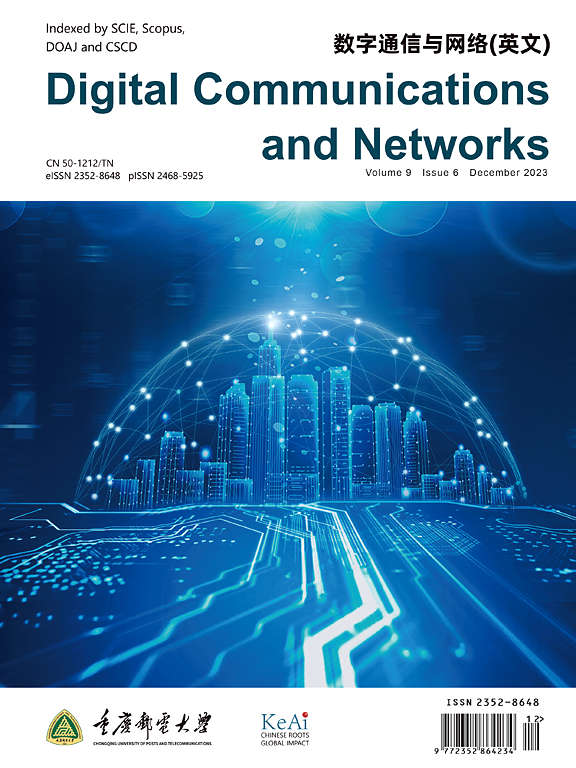Decomposition-based learning in drone-assisted wireless-powered mobile edge computing networks
IF 7.5
2区 计算机科学
Q1 TELECOMMUNICATIONS
引用次数: 0
Abstract
This paper investigates the multi-Unmanned Aerial Vehicle (UAV)-assisted wireless-powered Mobile Edge Computing (MEC) system, where UAVs provide computation and powering services to mobile terminals. We aim to maximize the number of completed computation tasks by jointly optimizing the offloading decisions of all terminals and the trajectory planning of all UAVs. The action space of the system is extremely large and grows exponentially with the number of UAVs. In this case, single-agent learning will require an overlarge neural network, resulting in insufficient exploration. However, the offloading decisions and trajectory planning are two subproblems performed by different executants, providing an opportunity for problem-solving. We thus adopt the idea of decomposition and propose a 2-Tiered Multi-agent Soft Actor-Critic (2T-MSAC) algorithm, decomposing a single neural network into multiple small-scale networks. In the first tier, a single agent is used for offloading decisions, and an online pretrained model based on imitation learning is specially designed to accelerate the training process of this agent. In the second tier, UAVs utilize multiple agents to plan their trajectories. Each agent exerts its influence on the parameter update of other agents through actions and rewards, thereby achieving joint optimization. Simulation results demonstrate that the proposed algorithm can be applied to scenarios with various location distributions of terminals, outperforming existing benchmarks that perform well only in specific scenarios. In particular, 2T-MSAC increases the number of completed tasks by 45.5% in the scenario with uneven terminal distributions. Moreover, the pretrained model based on imitation learning reduces the convergence time of 2T-MSAC by 58.2%.
无人机辅助无线移动边缘计算网络中基于分解的学习
本文章由计算机程序翻译,如有差异,请以英文原文为准。
求助全文
约1分钟内获得全文
求助全文
来源期刊

Digital Communications and Networks
Computer Science-Hardware and Architecture
CiteScore
12.80
自引率
5.10%
发文量
915
审稿时长
30 weeks
期刊介绍:
Digital Communications and Networks is a prestigious journal that emphasizes on communication systems and networks. We publish only top-notch original articles and authoritative reviews, which undergo rigorous peer-review. We are proud to announce that all our articles are fully Open Access and can be accessed on ScienceDirect. Our journal is recognized and indexed by eminent databases such as the Science Citation Index Expanded (SCIE) and Scopus.
In addition to regular articles, we may also consider exceptional conference papers that have been significantly expanded. Furthermore, we periodically release special issues that focus on specific aspects of the field.
In conclusion, Digital Communications and Networks is a leading journal that guarantees exceptional quality and accessibility for researchers and scholars in the field of communication systems and networks.
 求助内容:
求助内容: 应助结果提醒方式:
应助结果提醒方式:


